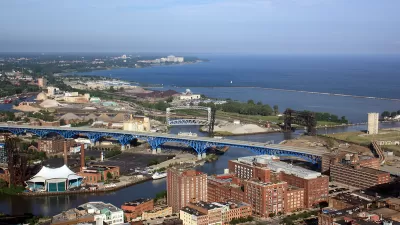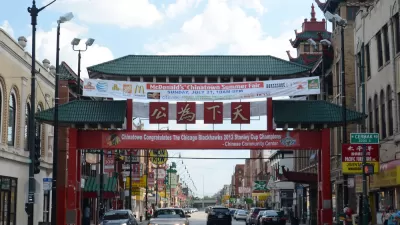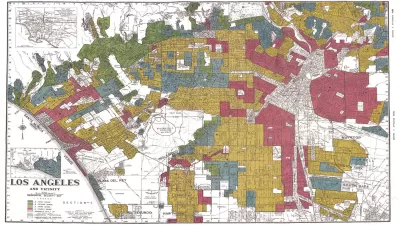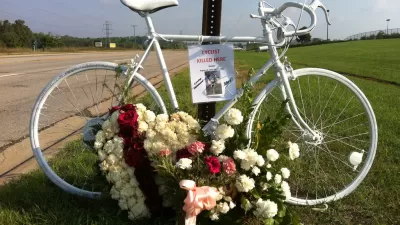Decades of racist policy and a lack of critical resources have left Cleveland in a perpetual state of economic fragility. The city can't afford another recession.

Cleveland has been hit hard over several decades by waves of population decline, recession, and lack of investment.
"City services began being slashed in the 1970s, then federal aid to cities fell dramatically in the 1980s and never recovered. Cleveland’s finances were ravaged again by the Great Recession – its neighbourhoods were devastated by foreclosure, and then, in 2012, Republican Governor John Kasich cut state aid to cities by half," writes Jake Blumgart.
The Cleveland that lifelong residents remember from before the 1970s no longer exists, says Blumgart, citing "some of the most inexorable forces in US history: anti-Black racism, deindustrialisation, population decline, state-level interference and aggressive suburbanisation."
Legislators and experts fear that without support in coming months, Cleveland could take another hit. "Like many US cities, Cleveland has spent the past half-century or more skipping from catastrophe to catastrophe. It can ill-afford another one," Blumgart writes. Cities like Detroit and Cleveland are unique, says Blumgart—no other advanced nation in the world has a racialized geography like the United States. The article lays out such practices as exclusionary zoning, restrictive covenants, and segregation as spurring the poor fiscal outcomes in the city of Cleveland.
"All of this ugly racial history devastated municipal finances," explains Blumgart. "All of this ugly racial history devastated municipal finances. Just as Cleveland became the home of the vast majority of the region’s low-income population, with the residents in the most need of public assistance, it became less and less able to maintain services."
Cleveland is a city that can't handle another recession.
FULL STORY: Cleveland is still suffering from the last recession. It can’t afford another

Alabama: Trump Terminates Settlements for Black Communities Harmed By Raw Sewage
Trump deemed the landmark civil rights agreement “illegal DEI and environmental justice policy.”

Planetizen Federal Action Tracker
A weekly monitor of how Trump’s orders and actions are impacting planners and planning in America.

Why Should We Subsidize Public Transportation?
Many public transit agencies face financial stress due to rising costs, declining fare revenue, and declining subsidies. Transit advocates must provide a strong business case for increasing public transit funding.

Understanding Road Diets
An explainer from Momentum highlights the advantages of reducing vehicle lanes in favor of more bike, transit, and pedestrian infrastructure.

New California Law Regulates Warehouse Pollution
A new law tightens building and emissions regulations for large distribution warehouses to mitigate air pollution and traffic in surrounding communities.

Phoenix Announces Opening Date for Light Rail Extension
The South Central extension will connect South Phoenix to downtown and other major hubs starting on June 7.
Urban Design for Planners 1: Software Tools
This six-course series explores essential urban design concepts using open source software and equips planners with the tools they need to participate fully in the urban design process.
Planning for Universal Design
Learn the tools for implementing Universal Design in planning regulations.
Caltrans
Smith Gee Studio
Institute for Housing and Urban Development Studies (IHS)
City of Grandview
Harvard GSD Executive Education
Toledo-Lucas County Plan Commissions
Salt Lake City
NYU Wagner Graduate School of Public Service





























